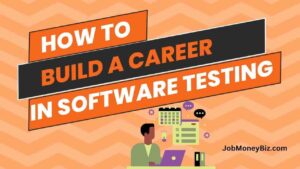What to Do If IT Jobs Don’t Suit You and You Want to Switch to a Different Job Profile – In today’s rapidly evolving job market, it’s not uncommon for individuals to find themselves in a career that isn’t quite the right fit. One such field is Information Technology (IT). If you’ve realized that IT jobs don’t suit you and you’re looking to switch to a different job profile, you’re not alone. Making a career change can be both daunting and exciting. This article provides comprehensive guidance on navigating this transition, helping you find a path that resonates with your strengths and interests.
What to Do If IT Jobs Don’t Suit You and You Want to Switch to a Different Job Profile
Assess Your Skills and Interests
Take a step back and evaluate your skills, strengths, and interests. What are you passionate about? What activities do you enjoy? Identifying your natural inclinations can guide you toward a new career that aligns with your personality and preferences.
Explore Alternative Careers
Research various job profiles that catch your attention. Look beyond IT and delve into industries that intrigue you. Attend workshops, seminars, and online courses to get a feel for different professions. This exploration phase will help you discover new avenues and broaden your horizons.
Identify Transferable Skills
While you might be transitioning out of IT, remember that many skills are transferable across industries. Problem-solving, communication, project management, and critical thinking are just a few examples of skills that can be valuable in various job roles.
Seek Professional Guidance
Consider seeking advice from career counselors or coaches. They can provide insights based on your personality, strengths, and aspirations. Their expertise can help you make an informed decision about your new career direction.
Network and Connect
Networking is a powerful tool when changing careers. Attend industry events, seminars, and workshops to meet professionals from different fields. Building connections can open doors to new opportunities and provide valuable insights into your desired job profile.
Gain Relevant Experience
If your desired job profile requires skills or experience you don’t currently possess, consider internships, part-time work, or volunteer opportunities. Practical experience can bolster your resume and make you a more attractive candidate.
Update Your Resume
Craft a tailored resume that highlights your transferable skills and relevant experience. Emphasize your accomplishments and showcase how they can benefit your potential new employer.
Leverage Online Resources
Numerous online platforms offer courses, tutorials, and certifications that can enhance your skill set. Consider taking courses related to your new career path to demonstrate your commitment to learning and growth.
Customize Your Job Search
When applying for new positions, tailor your applications to highlight the skills and experiences that are most relevant to the specific job role. Customize your cover letter and resume to demonstrate your enthusiasm for the new career path.
Stay Resilient
Career transitions can be challenging, but staying resilient is crucial. Rejections and setbacks are part of the journey. Use them as learning opportunities and keep your focus on the ultimate goal: finding a fulfilling job profile.
Embrace Continuous Learning
As you transition to a new job profile, be prepared for a learning curve. Embrace the opportunity to acquire new knowledge and skills, and remain open to ongoing growth.
Prepare for Interviews
Practice interviewing for your desired job profile. Research common interview questions and prepare thoughtful answers that highlight your relevant skills and experiences.
Stay Positive
Maintaining a positive outlook is essential during this process. Embrace the excitement of embarking on a new career path and view challenges as opportunities for personal and professional growth.
Manage Financial Considerations
Changing careers can sometimes come with financial adjustments. Plan for potential changes in income and expenses as you transition to your new job profile.
Seek Mentorship
Mentors can provide guidance, share insights, and offer valuable advice based on their own experiences. Look for individuals who have successfully transitioned to your desired job profile.
Be Patient
Career changes take time. Be patient with yourself and the process. Celebrate small victories along the way and remember that each step brings you closer to your goal.
FAQs
Can I switch to a different job profile without prior experience in that field?
Yes, you can. Many skills are transferable, and gaining relevant experience through internships, courses, and volunteering can make you a competitive candidate.
How do I know if a new job profile is right for me?
Conduct thorough research, explore your interests, and seek guidance from professionals in the field. You can also try informational interviews to get firsthand insights.
What if I’m worried about the financial impact of switching careers?
It’s important to plan ahead and budget for potential changes in income. Consider any necessary adjustments to your lifestyle during the transition.
Should I quit my current IT job before finding a new job profile?
It’s advisable to secure a new job before leaving your current one. This ensures a smoother transition without gaps in employment.
How do I address my career change in interviews?
Highlight your transferable skills, your passion for the new field, and your dedication to learning and growth. Showcase how your background can benefit the new role.
What if I face rejection during the job search process?
Rejections are common and should be viewed as learning opportunities. Stay persistent and use feedback to enhance your future applications.
Conclusion
If IT jobs no longer resonate with your career goals and aspirations, remember that embarking on a new job profile is an exciting opportunity for growth and self-discovery. By assessing your skills, exploring alternative careers, and embracing the challenges of change, you can navigate this transition successfully. Keep your focus on the future and remain open to the possibilities that lie ahead.
Anupam M is blogging on this site on different aspects of technology, job, and business. He is an experienced IT professional with an Engineering degree from a premier NIT. Know more



